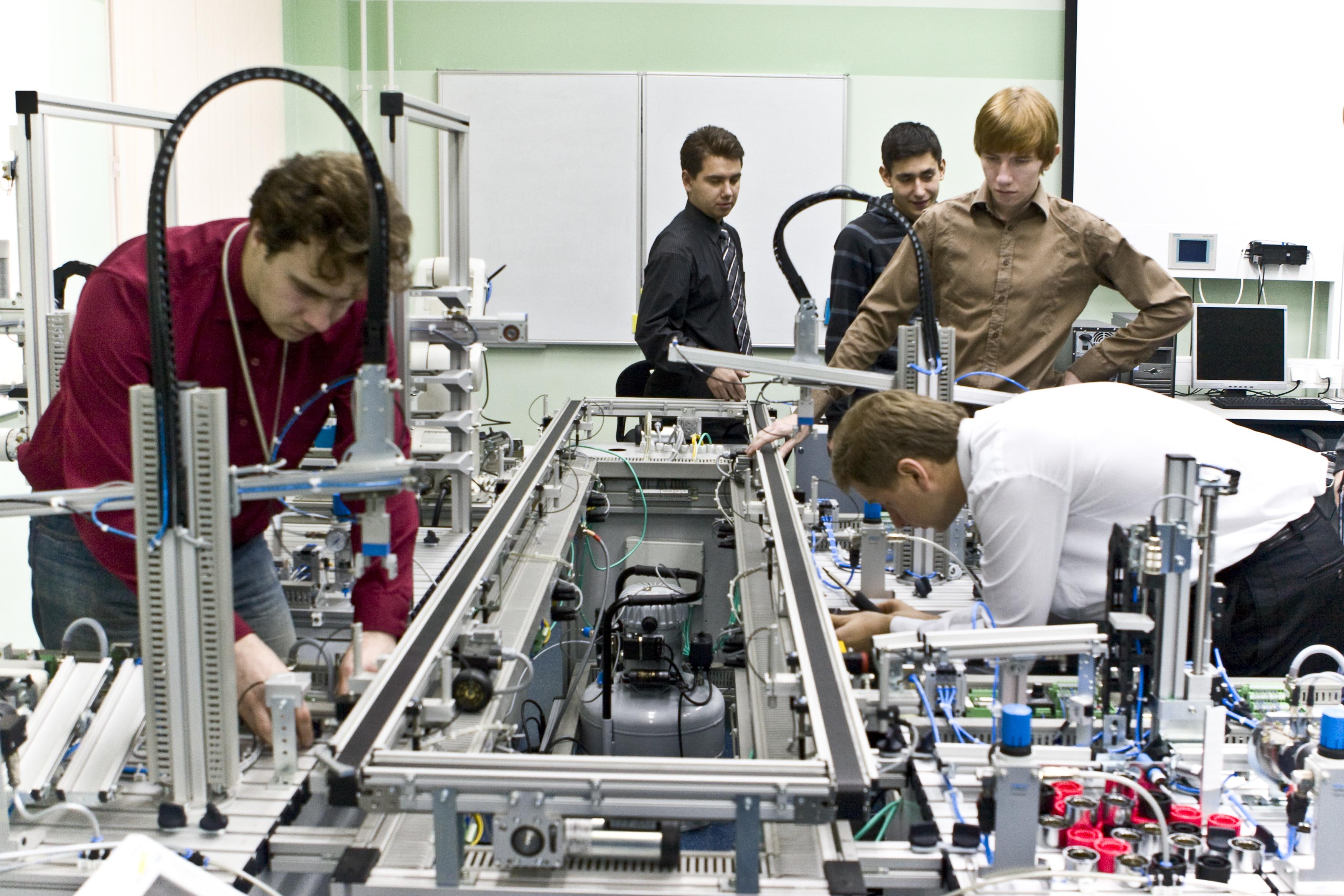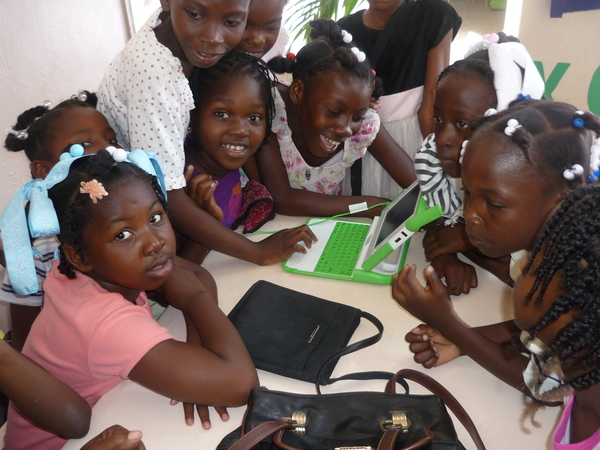|
Adult Learners' Week
Adult Learners' Week is an international festival of adult learning. It is a UNESCO initiative that was first celebrated in the United States in the late ’80s, where there was a move to create a broad celebration of adult learning by the American Association for the Advancement of Education (AAAE). In 1990, governments met in Jomtien for the Education for All World conference. The aim of this conference was to set goals for universal access to and completion of primary education and to reduce the adult illiteracy rate to one half its 1990 level by 2000. Today Adult Learners’ Week is celebrated in many countries across the globe. It is a grass roots campaign led by the community education sector. Adult Learners' Week in the UK In the United Kingdom, the National Institute of Adult and Continuing Education first coordinated Adult Learners’ Week in 1992. Today Adult Learners’ Week is the UK’s largest festival of learning, and the overall purpose of the initiative is to ... [...More Info...] [...Related Items...] OR: [Wikipedia] [Google] [Baidu] |
Adult Learning
Adult education, distinct from child education, is a practice in which adults engage in systematic and sustained educating activities in order to gain new knowledge, skills, attitudes, or values. Merriam, Sharan B. & Brockett, Ralph G. ''The Profession and Practice of Adult Education: An Introduction''. Jossey-Bass, 2007, p. 7. It can mean any form of learning adults engage in beyond traditional schooling, encompassing basic literacy to personal fulfillment as a lifelong learner, and to ensure the fulfillment of an individual. In particular, adult education reflects a specific philosophy about learning and teaching based on the assumption that adults can and want to learn, that they are able and willing to take responsibility for the learning, and that the learning itself should respond to their needs. Driven by what one needs or wants to learn, the available opportunities, and the manner in which one learns, adult learning is affected by demographics, globalization and techn ... [...More Info...] [...Related Items...] OR: [Wikipedia] [Google] [Baidu] |
Education In The United Kingdom
Education in the United Kingdom is a devolved matter, with each of the countries of the United Kingdom having separate systems under separate governments. The UK Government is responsible for England, whilst the Scottish Government, the Welsh Government and the Northern Ireland Executive are responsible for Scotland, Wales and Northern Ireland, respectively. For details of education in each country, see: * Education in England * Education in Northern Ireland * Education in Scotland * Education in Wales In 2018, the Programme for International Student Assessment, coordinated by the OECD, ranked the overall knowledge and skills of British 15-year-olds as 13th in the world in reading, literacy, mathematics, and science. The average British student scored 503.7, compared with the OECD average of 493. In 2014, the country spent 6.6% of its GDP on all levels of education – 1.4 percentage points above the OECD average of 5.2%. In 2017, 45.7% of British people aged 25 to 64 h ... [...More Info...] [...Related Items...] OR: [Wikipedia] [Google] [Baidu] |
Adult Literacy
Adult education, distinct from child education, is a practice in which adults engage in systematic and sustained educating activities in order to gain new knowledge, skills, attitudes, or values. Merriam, Sharan B. & Brockett, Ralph G. ''The Profession and Practice of Adult Education: An Introduction''. Jossey-Bass, 2007, p. 7. It can mean any form of learning adults engage in beyond traditional schooling, encompassing basic literacy to personal fulfillment as a lifelong learner, and to ensure the fulfillment of an individual. In particular, adult education reflects a specific philosophy about learning and teaching based on the assumption that adults can and want to learn, that they are able and willing to take responsibility for the learning, and that the learning itself should respond to their needs. Driven by what one needs or wants to learn, the available opportunities, and the manner in which one learns, adult learning is affected by demographics, globalization and techn ... [...More Info...] [...Related Items...] OR: [Wikipedia] [Google] [Baidu] |
Vocational Education And Training
Vocational education is education that prepares people for a Skilled worker, skilled craft. Vocational education can also be seen as that type of education given to an individual to prepare that individual to be gainfully employed or self employed with requisite skill. Vocational education is known by a variety of names, depending on the country concerned, including career and technical education, or acronyms such as TVET (technical and vocational education and training; used by UNESCO) and technical and further education, TAFE (technical and further education). TVE refers to all forms and levels of education which provide knowledge and skills related to occupations in various sectors of economic and social life through Formal learning, formal, Nonformal learning, non-formal and informal learning methods in both school-based and work-based learning contexts. To achieve its aims and purposes, TVE focuses on the learning and mastery of specialized techniques and the scientific p ... [...More Info...] [...Related Items...] OR: [Wikipedia] [Google] [Baidu] |
Formal Learning
Education is the transmission of knowledge and skills and the development of character traits. Formal education occurs within a structured institutional framework, such as public schools, following a curriculum. Non-formal education also follows a structured approach but occurs outside the formal schooling system, while informal education involves unstructured learning through daily experiences. Formal and non-formal education are categorized into levels, including early childhood education, primary education, secondary education, and tertiary education. Other classifications focus on teaching methods, such as teacher-centered and student-centered education, and on subjects, such as science education, language education, and physical education. Additionally, the term "education" can denote the mental states and qualities of educated individuals and the academic field studying educational phenomena. The precise definition of education is disputed, and there are disagreements ... [...More Info...] [...Related Items...] OR: [Wikipedia] [Google] [Baidu] |
Numeracy
Numeracy is the ability to understand, reason with, and apply simple numerical concepts; it is the numerical counterpart of literacy. The charity National Numeracy states: "Numeracy means understanding how mathematics is used in the real world and being able to apply it to make the best possible decisions...It's as much about thinking and reasoning as about 'doing sums'". Basic numeracy skills consist of comprehending fundamental arithmetical operations like addition, subtraction, multiplication, and division. For example, if one can understand simple mathematical equations such as 2 + 2 = 4, then one would be considered to possess at least basic numeric knowledge. Substantial aspects of numeracy also include number sense, operation sense, computation, measurement, geometry, probability and statistics. A numerically literacy, literate person can manage and respond to the mathematical demands of life. By contrast, innumeracy (the lack of numeracy) can have a negative impact. Nume ... [...More Info...] [...Related Items...] OR: [Wikipedia] [Google] [Baidu] |
Literacy
Literacy is the ability to read and write, while illiteracy refers to an inability to read and write. Some researchers suggest that the study of "literacy" as a concept can be divided into two periods: the period before 1950, when literacy was understood solely as alphabetical literacy (word and letter recognition); and the period after 1950, when literacy slowly began to be considered as a wider concept and process, including the social and cultural aspects of reading, writing, and functional literacy. Definition The range of definitions of literacy used by Non-governmental organization, NGOs, think tanks, and advocacy groups since the 1990s suggests that this shift in understanding from "discrete skill" to "social practice" is both ongoing and uneven. Some definitions remain fairly closely aligned with the traditional "ability to read and write" connotation, whereas others take a broader view: * The 2003 National Assessment of Adult Literacy (USA) included "quantitativ ... [...More Info...] [...Related Items...] OR: [Wikipedia] [Google] [Baidu] |
Formal Education
Education is the transmission of knowledge and skills and the development of character traits. Formal education occurs within a structured institutional framework, such as public schools, following a curriculum. Non-formal education also follows a structured approach but occurs outside the formal schooling system, while informal education involves unstructured learning through daily experiences. Formal and non-formal education are categorized into levels, including early childhood education, primary education, secondary education, and tertiary education. Other classifications focus on teaching methods, such as teacher-centered and student-centered education, and on subjects, such as science education, language education, and physical education. Additionally, the term "education" can denote the mental states and qualities of educated individuals and the academic field studying educational phenomena. The precise definition of education is disputed, and there are disagreements ... [...More Info...] [...Related Items...] OR: [Wikipedia] [Google] [Baidu] |
Non-formal Learning
Non-formal learning includes various structured learning situations which do not either have the level of curriculum, institutionalization, accreditation or certification associated with 'formal learning', but have more structure than that associated with 'informal learning', which typically take place naturally and spontaneously as part of other activities. These form the three styles of learning recognised and supported by the OECD. Examples of non-formal learning include swimming sessions for toddlers, community-based sports programs, and programs developed by organisations such as the Boy Scouts, the Girl Guides, community or non-credit adult education courses, sports or fitness programs, professional conference style seminars, and continuing professional development. The learner's objectives may be to increase skills and knowledge, as well as to experience the emotional rewards associated with increased love for a subject or increased passion for learning. History The debat ... [...More Info...] [...Related Items...] OR: [Wikipedia] [Google] [Baidu] |
Formal Learning
Education is the transmission of knowledge and skills and the development of character traits. Formal education occurs within a structured institutional framework, such as public schools, following a curriculum. Non-formal education also follows a structured approach but occurs outside the formal schooling system, while informal education involves unstructured learning through daily experiences. Formal and non-formal education are categorized into levels, including early childhood education, primary education, secondary education, and tertiary education. Other classifications focus on teaching methods, such as teacher-centered and student-centered education, and on subjects, such as science education, language education, and physical education. Additionally, the term "education" can denote the mental states and qualities of educated individuals and the academic field studying educational phenomena. The precise definition of education is disputed, and there are disagreements ... [...More Info...] [...Related Items...] OR: [Wikipedia] [Google] [Baidu] |
International Literacy Day
International Literacy Day is an international observance, celebrated each year on 8 September. It was declared by UNESCO on 26 October 1966 at the 14th session of UNESCO's General Conference and celebrated for the first time in 1967. The day aims is to highlight, the importance of literacy to individuals, communities, and societies. Celebrations take place in several countries. Rationale Some 775 million lack minimum literacy skills; one in five adults are still not literate and two-thirds of, them are women. 60.7 million children are out of school and many more attend irregularly or drop out. According to UNESCO’s " Global Monitoring Report on Education for All (2006)," South Asia has the lowest regional adult literacy rate Literacy is the ability to read and write, while illiteracy refers to an inability to read and write. Some researchers suggest that the study of "literacy" as a concept can be divided into two periods: the period before 1950, when literacy was ... ... [...More Info...] [...Related Items...] OR: [Wikipedia] [Google] [Baidu] |





